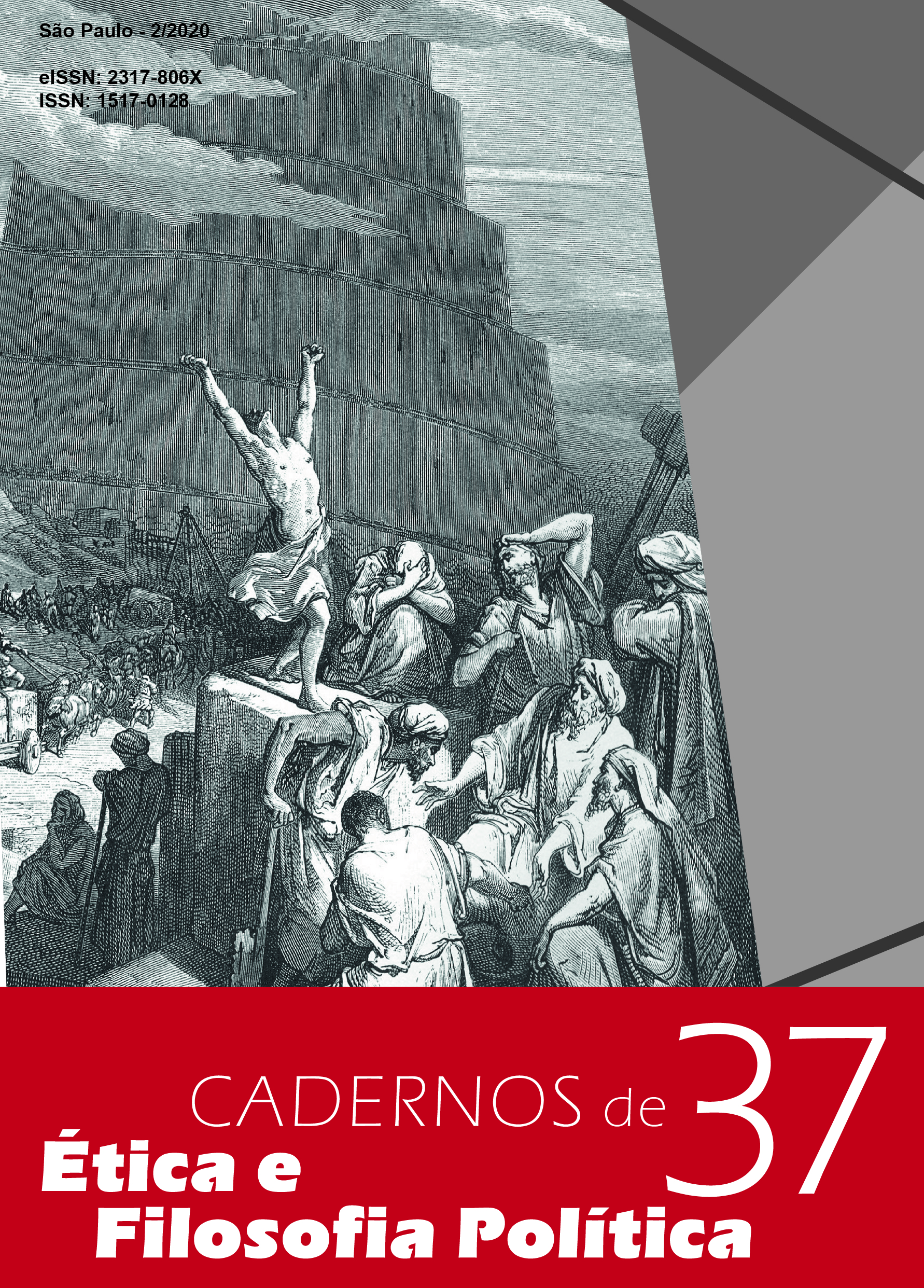O papel das paixões tristes na formação da multidão em Espinosa
DOI:
https://doi.org/10.11606/issn.1517-0128.v2i37p133-146Palabras clave:
Espinosa, Antonio Negri, política, paixões tristes, multidãoResumen
Há duas vias para se compreender o acordo entre os homens que culmina na constituição da multidão: a da razão e a dos afetos. Neste artigo nosso propósito é tematizar o papel dos afetos, mais especificamente os afetos tristes, na constituição da multitudo. Para tanto, partiremos da interpretação que Antonio Negri faz da obra política de Espinosa, a qual dá ênfase sobretudo a paixões alegres na criação do comum e indica uma tendência predominantemente democrática do projeto espinosano.
Descargas
Referencias
CHAUÍ, M. Política em Espinosa. São Paulo: Companhia das Letras, 2003.
ESPINOSA, B. Ética. Tradução: Grupo de Estudos Espinosanos. 1a ed. São Paulo: Editora da Universidade de São Paulo, 2015
ESPINOSA, B. Tratado Político. Tradução: Diogo Pires Aurélio. 1a ed. São Paulo: Martins Fontes, 2009.
ESPINOSA, B. Tratado Teológico-Político. Tradução: Diogo Pires Aurélio. 1a ed. São Paulo: Martins Fontes, 2003.
ESPINOSA, B. Opera. Ed. Carl Gebhardt. Heidelberg: Carl Winters Universitætbuchhandlung, 1972, 4 vols. Œuvres. Paris, PUF, 4 vols. publicados.
HOBBES, T. Leviatã. Tradução: João Paulo Monteiro e Maria Beatriz Nizza da Silva. São Paulo: Martins Fontes, 2014.
JAQUET, C. “O acordo afetivo da multidão: O desejo (desiderium) de vingança como princípio do corpo político”. In: Discurso, v. 45, n. 2, pp. 41-62, 17 dez. 2015.
MATHERON, A. Individu et Communauté chez Spinoza. Paris: Les Éditions de Minuit, 1988.
NEGRI, A. Espinosa Subversivo e outros escritos. Tradução: Herivelto Pereira de Souza. Belo Horizonte: Autêntica Editora, 2017.
NEGRI, A. A Anomalia Selvagem. Tradução: Raquel Ramalhete. 2a ed. São Paulo: Editora 34 e Editora Filosófica Politeia, 2018.
VISENTIN, S. “A ontologia política de Espinosa na leitura de Antonio Negri”. In: Cadernos Espinosanos, n. 38, pp. 151-170, 30 jun. 2018.
Descargas
Publicado
Número
Sección
Licencia
Derechos de autor 2020 Matheus Romero de Morais

Esta obra está bajo una licencia internacional Creative Commons Atribución-CompartirIgual 4.0.


